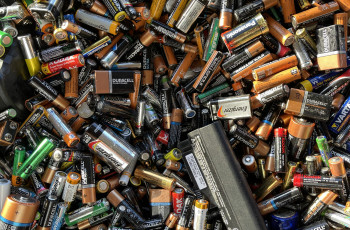If you’re in the market for a heavy-duty die grinder, you may find yourself faced with the decision between a pneumatic or electric model. Both options offer their own set of advantages and considerations, making it important to understand the differences before making your purchase. In this article, we will compare the two types of die grinders, highlighting their various features, power capabilities, and suitability for different applications. By the end, you’ll have a clear understanding of which option is best suited to meet your grinding needs.
Power Source
Pneumatic Die Grinders
Pneumatic die grinders are powered by compressed air, making them a popular choice among professionals for heavy-duty applications. The power source for these tools is typically an air compressor, which produces a steady and reliable source of compressed air. Pneumatic die grinders are known for their high torque output and ability to handle tough materials with ease.
Electric Die Grinders
On the other hand, electric die grinders are powered by electricity, either from an electrical outlet or a battery. These grinders are generally more convenient for home use or smaller projects where mobility is not a concern. Electric die grinders provide a consistent power output, which is ideal for precision work and tasks that require lower torque.
Power Output
Pneumatic Die Grinders
When it comes to power output, pneumatic die grinders have the upper hand. Compressed air allows these grinders to deliver a high level of torque, making them suitable for heavy-duty jobs that require a lot of force. This makes them the preferred choice for tasks such as grinding, sanding, and cutting through tough materials like metal.
Electric Die Grinders
Electric die grinders, while not as powerful as their pneumatic counterparts, still offer a respectable power output. They are more suitable for tasks that require precision and finesse rather than brute force. Electric die grinders are commonly used for tasks such as deburring, polishing, and light grinding.

Ease of Use
Pneumatic Die Grinders
Pneumatic die grinders are generally straightforward to use, but they do require an air compressor to operate. Setting up the tools and ensuring the proper air pressure can be a bit time-consuming, especially for beginners. However, once set up, operating a pneumatic die grinder is as simple as pressing the trigger and directing the tool towards the desired area.
Electric Die Grinders
Electric die grinders are much easier to use compared to their pneumatic counterparts. They typically have a cord that plugs directly into a power outlet, eliminating the need for an air compressor setup. Some models also come with battery-powered options, offering even more portability. Electric die grinders are user-friendly, with controls that are easy to understand and operate.
Portability
Pneumatic Die Grinders
Portability is where pneumatic die grinders fall short. Due to their reliance on an air compressor, these grinders are limited by the length of the air hose. This can restrict movement and make it challenging to work in tight spaces or areas without access to compressed air. Additionally, the air compressor itself is bulky and not easily transported.
Electric Die Grinders
Electric die grinders have a clear advantage in terms of portability. With no need for an air compressor, these grinders can be used anywhere with access to electricity or battery power. They are compact, lightweight, and easy to carry around, making them the preferred choice for those who need a versatile tool that can be used in various locations.

Maintenance
Pneumatic Die Grinders
Maintenance for pneumatic die grinders is relatively simple. It mainly involves regular cleaning and lubrication of the tool’s internal components. Additionally, the air compressor used to power the grinder may require maintenance, such as checking the oil level and ensuring proper filtration. Overall, pneumatic die grinders require minimal maintenance to keep them in good working condition.
Electric Die Grinders
Electric die grinders also require minimal maintenance. Cleaning the tool and ensuring the electrical connections are secure are the primary tasks. Battery-powered models may require occasional battery replacement or recharging. However, compared to the maintenance needs of an air compressor, electric die grinders are generally easier to maintain.
Noise Level
Pneumatic Die Grinders
Pneumatic die grinders are known for their relatively low noise level compared to electric grinders. The sound produced by the air compressor and the grinder itself is often less intrusive, making them a popular choice in noise-sensitive environments or when working in close proximity to others. However, it is still advisable to wear hearing protection when using any power tool.
Electric Die Grinders
Electric die grinders tend to be noisier than their pneumatic counterparts. The sound produced by the electric motor and the grinding action can be louder, especially when working with higher power settings. While not excessively loud, it is still recommended to wear hearing protection when using electric die grinders for extended periods.

Price
Pneumatic Die Grinders
Pneumatic die grinders are generally more affordable than electric die grinders. The initial cost of the tool itself is often lower, and there is no need to invest in an expensive battery or charger. However, it is important to consider the additional cost of an air compressor when comparing prices. The cost of maintaining the air compressor should also be taken into account.
Electric Die Grinders
Electric die grinders tend to be more expensive upfront, especially if opting for a high-quality corded model or a battery-powered one with a reliable battery life. However, there are plenty of affordable options available in the market. Additionally, electric die grinders do not require an air compressor, which can save on long-term costs.
Versatility
Pneumatic Die Grinders
Pneumatic die grinders excel in terms of versatility. They can handle a wide range of applications, from heavy grinding and cutting to delicate polishing and deburring. The ability to adjust the air pressure allows for greater control over the tool’s speed and power output. Pneumatic die grinders are highly versatile and can be used in various industries, including automotive, construction, and metalworking.
Electric Die Grinders
While not as versatile as pneumatic die grinders, electric die grinders still offer a good range of applications. They are ideal for precision work, such as engraving, shaping, and detailing. With variable speed settings, electric die grinders allow for more control over the tool’s operation, making them suitable for tasks that require finesse.
Durability
Pneumatic Die Grinders
Pneumatic die grinders are known for their durability and reliability. The absence of an electric motor reduces the risk of overheating or burning out. With fewer moving parts, these grinders are less prone to mechanical failures, ensuring a longer lifespan with proper maintenance. Pneumatic die grinders are built to withstand heavy use and demanding work environments.
Electric Die Grinders
Electric die grinders are generally durable as well, although their longevity can be affected by factors such as motor quality and the frequency of use. Overheating is a potential issue, especially with prolonged and high-power applications. However, with proper care and periodic maintenance, a good-quality electric die grinder can last for years.
Application
Pneumatic Die Grinders
Pneumatic die grinders are the go-to choice for heavy-duty applications. They are widely used in industries such as metalworking, automotive repairs, and construction, where high torque and force are necessary to tackle tough materials. From grinding and cutting metal to removing rust and corrosion, pneumatic die grinders are a reliable tool for demanding tasks.
Electric Die Grinders
Electric die grinders are more suitable for lighter applications that require precision and finesse. They are commonly used in woodworking, engraving, and detailing tasks. Electric die grinders are also popular among hobbyists, artists, and DIY enthusiasts who require a versatile and user-friendly tool for various projects.
In conclusion, the choice between pneumatic and electric die grinders depends on the specific needs of the user. Pneumatic die grinders offer greater power and torque, making them ideal for heavy-duty tasks in industries such as automotive and metalworking. Electric die grinders, while less powerful, provide more convenience, portability, and versatility, making them suitable for precision work and lighter applications. Consider factors such as power output, ease of use, portability, maintenance, noise level, price, versatility, durability, and application requirements when selecting between pneumatic and electric die grinders.



